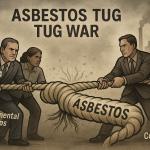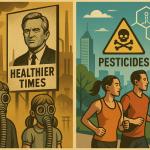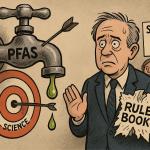The recent Supreme Court Skrmetti decision, validating legislation banning puberty blockers and hormonal treatment for trans-childr
Policy & Ethics
Purdue Pharma recently reached a $7.4 billion settlement with all 50 states and the Di
In January 2025, I wrote about how the battle to define “unreasonable risk” under the Chemical Saf
Join Cameron English and Dr. Chuck Dinerstein on Episode 118 of the Science Dispatch podcast as they discuss:
Beyond formatting concerns, the MAHA report blames synthetic chemicals for our obesity, eczema, and chronic di
The false narrative refuses to die.
"Every five years, as many as half of MA enrollees switch from one MA plan to a different MA plan, and one in ten exit MA for traditional fee-for-service Medicare."
On May 14, EPA announced that it would keep the current drinking water regulations for PFOA and PFOS, two “forever chemicals” at four parts per trillion (ppt), and will rescind and reconsider the rules for PFHxS, PFNA, and “GenX chemicals” a
This month is the 98th anniversary of Buck v. Bell – the infamous case upholding Virginia’s involuntary sterilization law.












